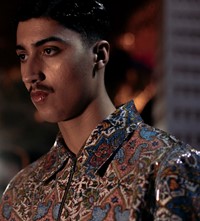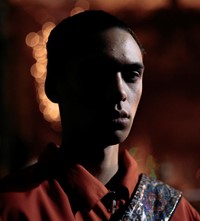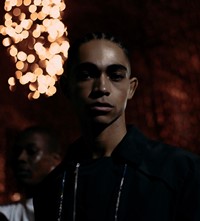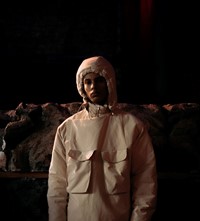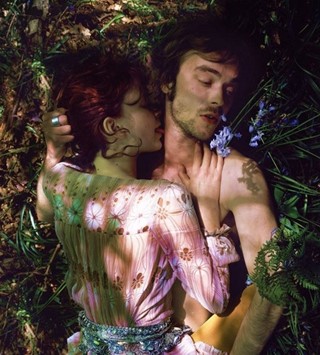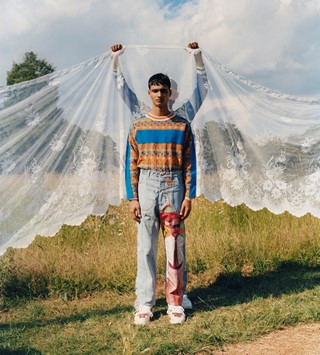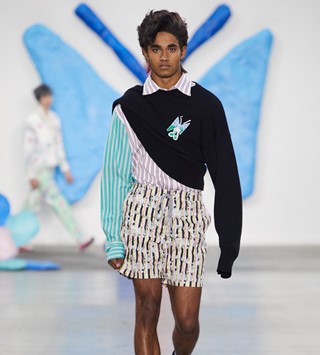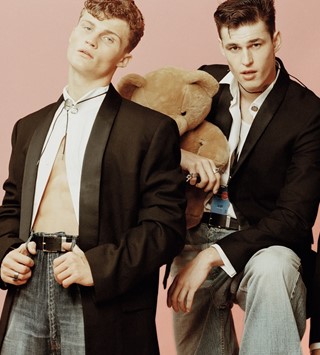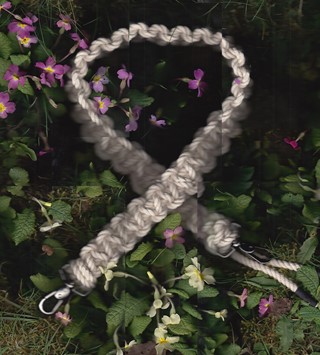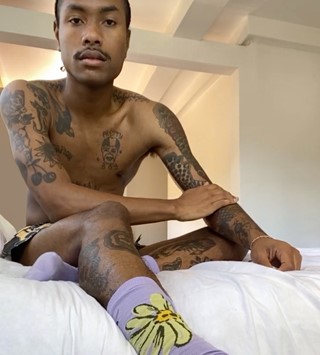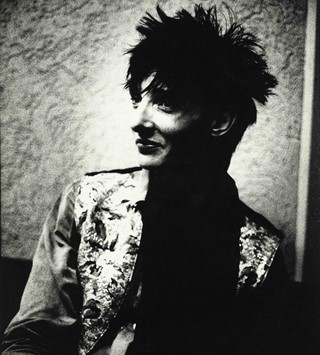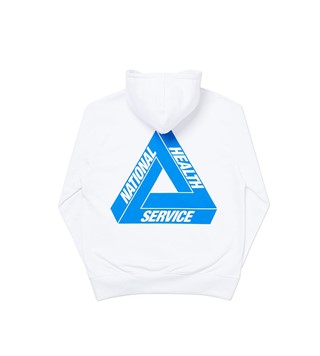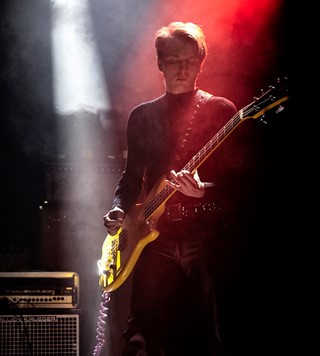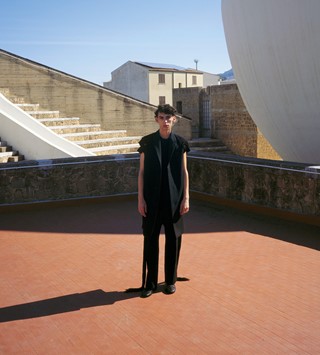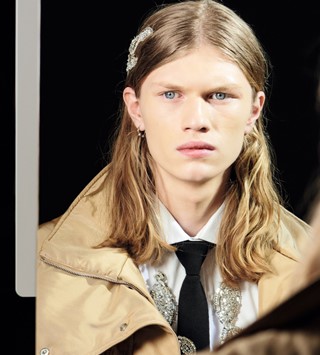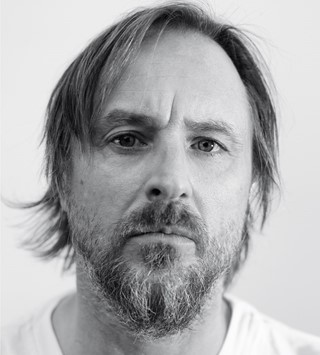Off the back of her first ever runway show, Emma Elizabeth Davidson sits down with the emerging designer
Up Next is a new column taking a closer look at some of fashion’s rising stars.
Name/Brand: Paria Farzaneh
Location: London, UK
Alma Mater: Ravensbourne University
USP: Utilitarian silhouettes infused with Iranian flourishes
Instagram: @pariafarzaneh
Over the course of the past few seasons, it’s become wholly apparent that Paria Farzaneh is one to watch on the London menswear scene. Born in Yorkshire of Iranian descent, this weekend Farzaneh staged her first ever runway show, which expanded upon the world she’s currently creating for herself, while further challenging common misconceptions surrounding Iran.
While it’s likely you’re au fait with the Middle Eastern country’s turbulent history and supposedly conservative codes of dress, Farzaneh has been intent on altering Western perceptions from the off. Forget what you think you know: the designer is celebrating its rich visual legacy and wildly vibrant culture, fusing utilitarian, straight-off-the-street silhouettes with imaginative Iranian flourishes by way of traditional construction and dying methods, and intricate hand drawn motifs that feature throughout her collections.
She’s clearly doing something right – not long after she’d established her eponymous label, Frank Ocean chose to wear her designs to headline Lovebox in 2017, declaring himself, without words, a fan of her unique vision.
As well as her Iranian heritage, Farzaneh’s family plays in an important role in her work. Last season’s collection paid tribute to her uncle, who passed away in early 2018, and for its accompanying S/S19 lookbook, she enlisted her dad to model for her. It was also in the Farzaneh household, during her childhood, that the idea of becoming a fashion designer began to take root. Her first experience of fashion, she explains, happened when she was about eight or nine, and came as the result of a task she was set while in the Brownies: making a sash to put all her badges on.
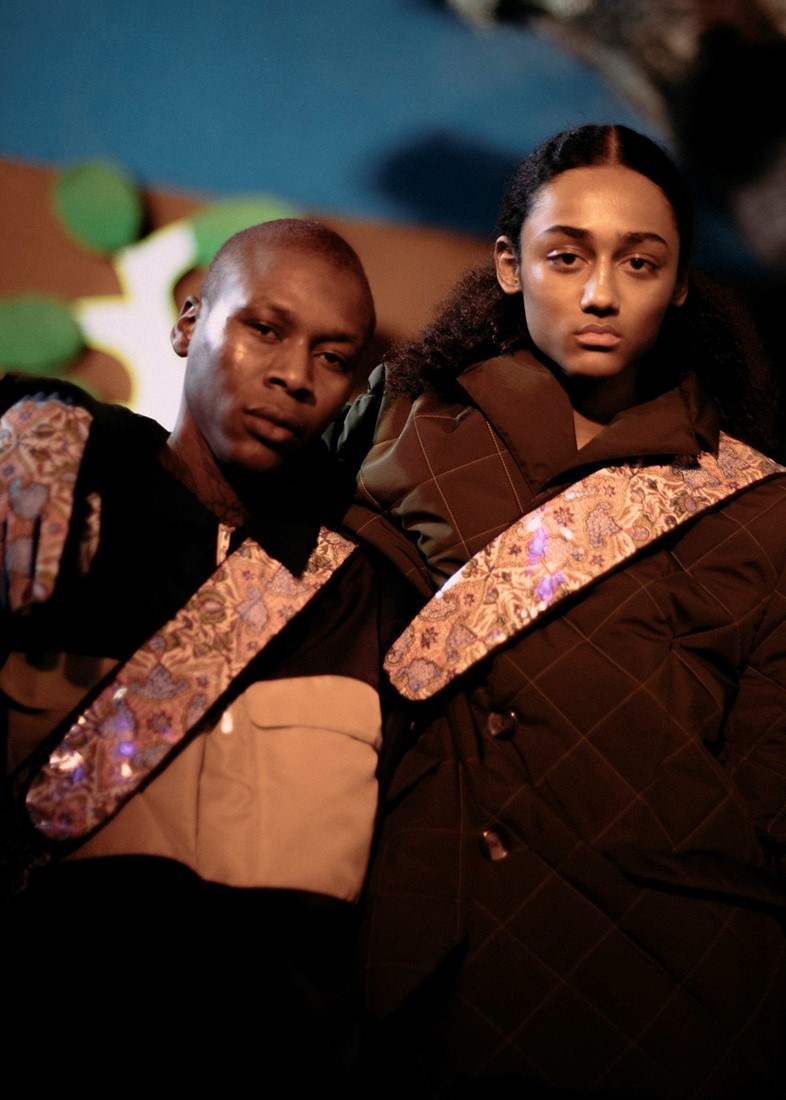
Though Farzaneh demonstrated a propensity for making things from a young age, she was less keen to outwardly embrace her Iranian roots when she was growing up. It’s not surprising. Growing up anywhere is difficult, but growing up, particularly when you might fit into the category marked ‘different’, in Hull is something else entirely – something you could say I’m pretty familiar with, given I moved there at three with a broad Scottish accent.
“I was kind of embarrassed about where I’m from when I was growing up,” she says. “It wasn’t like I didn’t want anyone to know I was Iranian, but when my friends came over I’d be like: ‘Mum, stop bringing plates of sliced fruit and big sweet platters over!’” she says. “But that’s basically just the culture. Whenever anyone comes over, you treat them ten times better than you would yourself. Which I obviously realise now is actually a really lovely thing.”
Though the small, largely grey Northern city has changed drastically in the last few years or so – helped largely by its status as the UK’s City of Culture in 2017, and significant investment in arts and culture – in the 90s and 00s, when Farzaneh and I were at school, levels of unemployment, teenage pregnancy, and drug abuse were some of the highest in the country.
For most, it was generally accepted that you’d settle there and never leave – which makes it all the more exhilarating to see a young woman of her skill achieve the level of success she has in such a short space of time. For me, it’s not a case of being pleased that she ‘got out!’, but there’s certainly a little pride that a girl from Hull did, and is continuing to do, really, really well.
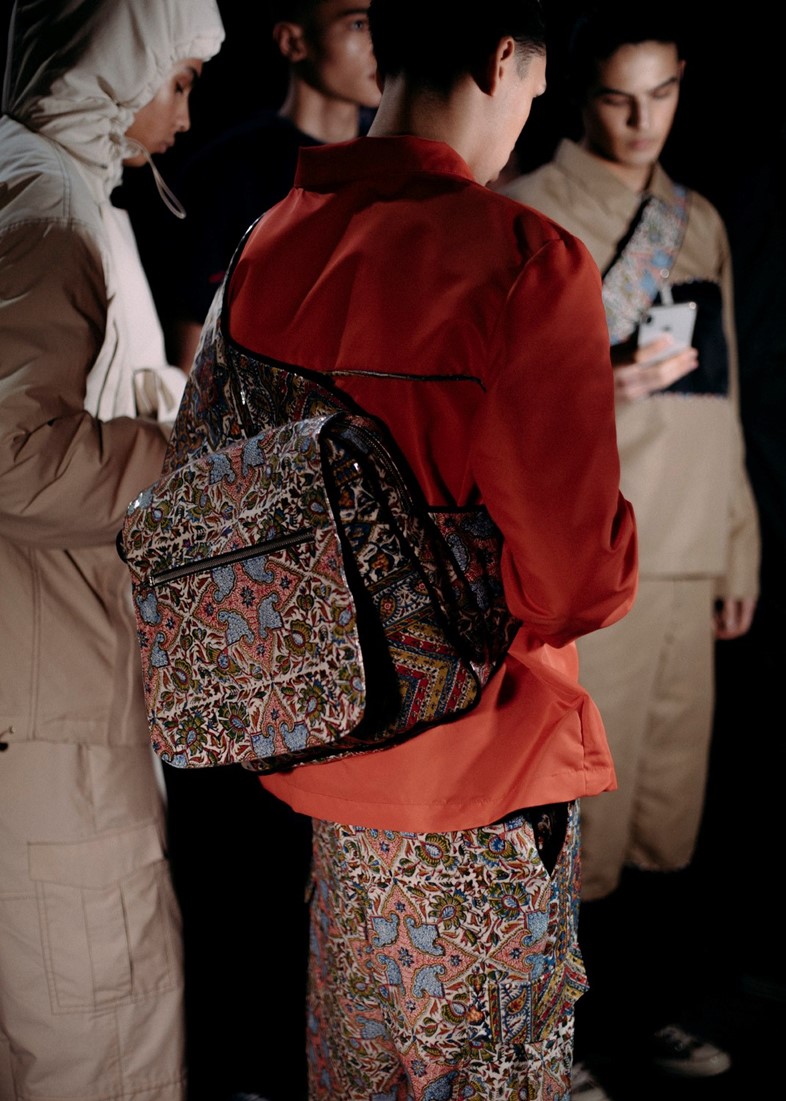
That’s not to say the city is without its better aspects, though. The Hull School of Art and Design particularly – where Farzaneh and myself studied art and fashion respectively – is an incubator for young talent, with a line-up of fiercely encouraging tutors. One of them, we realise, taught us both. “Oh my God, Andy was the best guy,” Farzanah exclaims. “He was like a teddy clown with his multi-coloured Doc Martens and his polo shirt and spotted tie. He was such a character, I’ll never forget him, he was so inspiring!” Farzaneh graduated with flying colours and went on to Ravensbourne University.
Cut to 2019, and, following on from previous shows which have been held guerilla-style on the back of a lorry on the Southbank and in an Iranian restaurant, Farzaneh’s A/W19 runway show saw models emerge from transparent vinyl curtains and walk against the flow of the travelator set up in South London’s XXL club.
Moving away from the realm of streetwear (“it no longer feels authentic to me”) and towards a neater, more put-together aesthetic, models wore a series of quilted jackets and trousers, oversized puffas, graphic knits, and silky cargo pants and track tops, taking selfies as they made their way down the moving walkway. She explained post-show that it was a comment on the fact we are so dependent on our phones, and the way that many of us live through them instead of just enjoying the moment.
“This collection serves as a commentary on just how uninspiring the world, and especially London, has been for me over the past six months – especially in terms of what’s going on politically and with Brexit, and our growing dependency on social media, Instagram, and so on,” she explains. “With a fashion show, you get ten or 15 minutes to take everyone on a journey, to transport them away from all of that and make them feel something. That’s what I’m hoping to do.”
